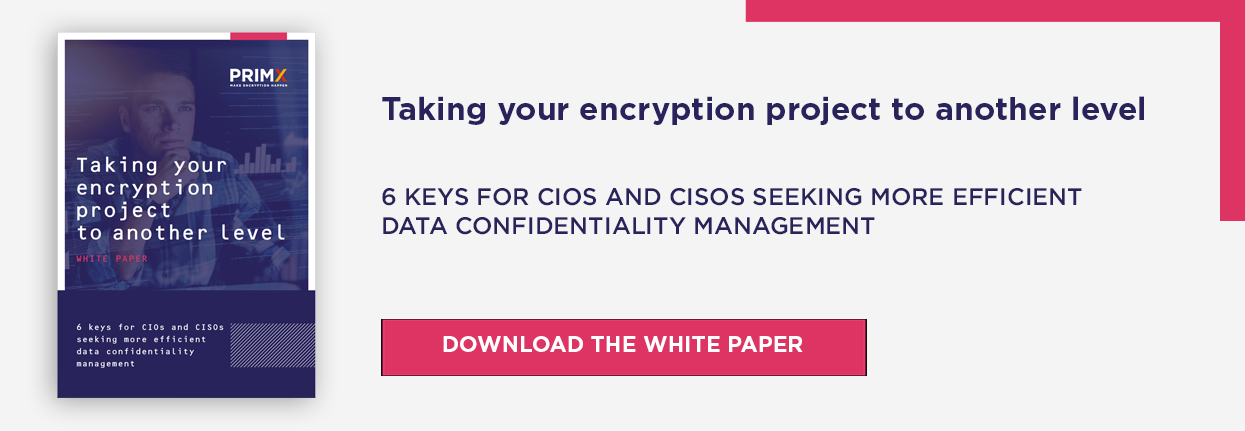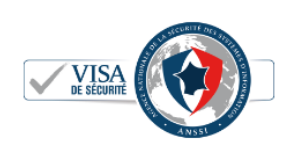Data protection: how to secure file transfers to third parties
Tech culture
Best practices to secure in-house and external exchanges

Securing file transfers is a crucial issue for organizations. Data exchanged inside and outside businesses contains sensitive information such as financial documents, confidential projects, and personal data. Without appropriate security measures, that information is vulnerable to cyber-attacks and data breaches.
File transfer solutions: what are the data security risks?
The many solutions on the market, such as WeTransfer, Dropbox, Swiss Transfer, Smash or GrosFichiers, make it easy to exchange files with third parties. Similarly, tools such as Google Drive, OneDrive and SharePoint, primarily designed for collaboration (several users working on the same document at the same time), also make it possible for files or folders to be shared via links, or by assigning specific permissions to specific users.
As hybrid working has become more widespread, these solutions have major advantages, notably the transfer (and storage) of large files, with precise configuration of access rights.
These solutions also provide layers of security when sending and storing data, as well as password protection for transfers, with expiry dates for shared links.
Even so, they carry many cybersecurity-related risks:
- Most of them are subject to extraterritorial laws, such as the Cloud Act and FISA (Foreign Intelligence Surveillance Act), which can expose some confidential data to the scrutiny of the US authorities.
- When used on personal terminals, which are often less secure than business devices, the risk of software vulnerabilities is high. The hardware can then be compromised by cyber-criminals, who are then able to access the data.
Best practices for securing exchanges with third parties
To secure corporate and external exchanges, we recommend the use of professional, certified security solutions, as opposed to tools designed for the general public. This software has audit-proven security, enterprise-class functionality, and efficient, available technical support.
Access management is another essential pillar. A role-based approach makes it possible to fine-tune authorizations according to the positions held inside and outside the organization. This granularity extends down to the individual file and folder level, making it possible to tailor permissions to users’ specific needs.
Last but not least, employee training and awareness-raising is a major asset in this security approach. Regularly training employees in cybersecurity best practices, and in particular in the importance of protecting sensitive information, is a significant contribution to enhancing the security of exchanges. Defining clear security policies, in particular on the use of personal devices and external file sharing, plays an active part in raising the level of knowledge and the maturity of teams when it comes to cybersecurity.
Secure containers: the ideal solution for securing file exchanges
Encrypted containers are similar to a conventional compressed folder and can contain separate files or a complete tree structure, with no volume constraints.
Their specificity is the automatic encryption of the data they contain, guaranteeing confidentiality even if the containers are stolen. That protection extends to data in transit or potentially stolen data, rendering it unreadable and unusable by any unauthorized user.
Encrypted containers can also contain multiple files or a complete folder structure, making it easy to manage and securely store sensitive data in a single location. Furthermore, they provide the possibility of customizing access rights depending on users.
In that context, PRIM’X has developed ZED!, a container designed to secure the exchange of content over unsecured networks or storage spaces. Based on certified technology, ZED! encrypted containers allow users to interact with their external contacts in complete confidence, guaranteeing the integrity and confidentiality of shared information.
PRIM’X also proposes ZEDMAIL, an email encryption solution that integrates seamlessly with Outlook. Not only does it automatically encrypt the emails and attachments, it also makes it possible to define customized security policies for different recipients. ZEDMAIL provides optimum protection for sensitive electronic communications.
Although convenient, common file-sharing solutions have security and confidentiality risks. To guard against them, it is essential to adopt rigorous practices. The use of professional solutions such as ZED! encrypted containers, alongside file-sharing solutions, provides effective protection for exchanges, allowing businesses to secure their information assets and comply with applicable regulations.






